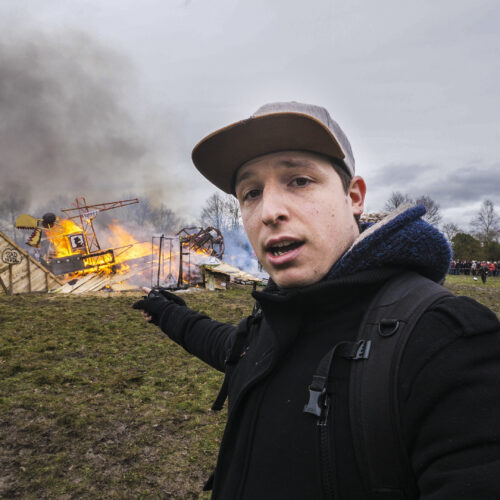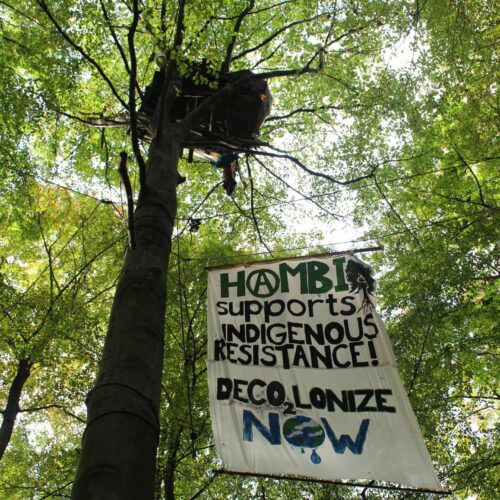Orwellian or Overwellmian?
Donald Trump Jr recently compared his father’s Twitter ban to Orwell’s dystopia, claiming that “We are living in Orwell’s 1984. Free speech no longer exists in America”, prompting journalists to write articles to educate the public that George Orwell was a “self-described democratic socialist” and that he “always belonged on the Left”. The prophetic novel has been boasting record sales in recent years and yet the really interesting part is that now various, polar sides of the political spectrum are using the term Orwellian to characterize the opposing camps. In Orwell’s fictional totalitarian state, Newspeak is the language, “designed to diminish the range of thought”, and people are taught that “War is peace. Freedom is slavery. Ignorance is strength.” Create confusion, sow doubt, the strategy employed by numerous political leaders, like Putin’s political technologists as depicted in Adam Curtis’ HyperNormalisation, is becoming commonplace – and it’s working.
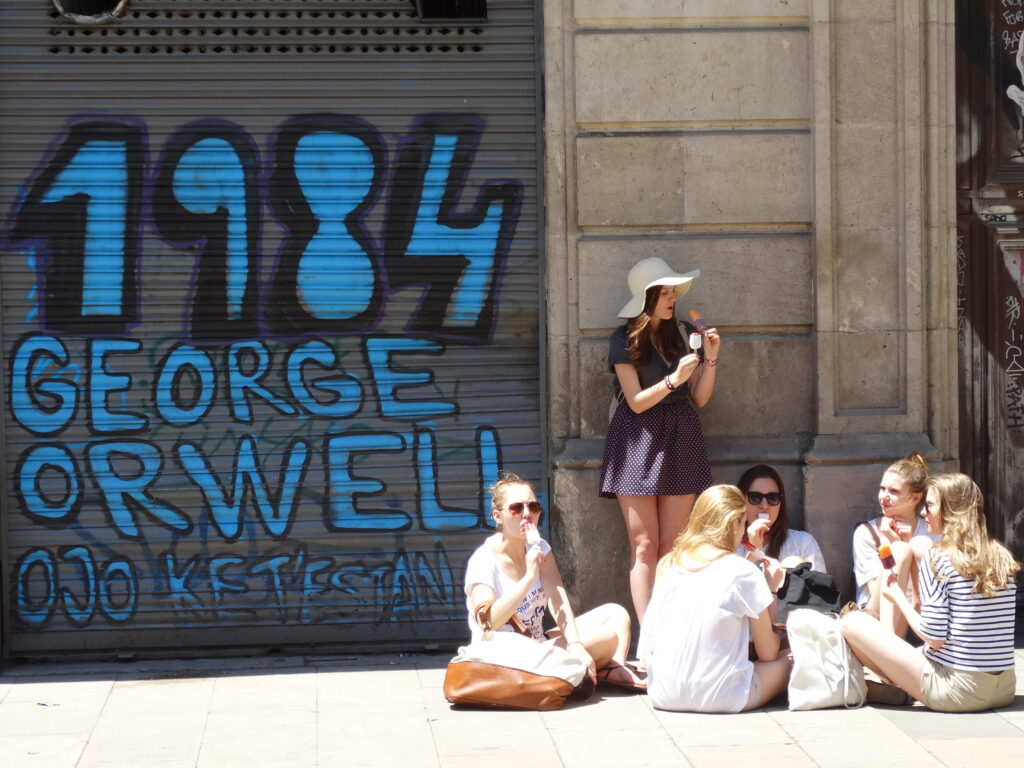
When I rocked up at Berlin’s Black Lives Matter march in late June last year, there were young people holding signs says “racism is the virus”, there were anti-maskers holding “Covid is a hoax, I want to breathe” placards, eco activists held banners highlighting that “climate injustice is racist” while others demanded “justice in Moria” highlighting the migrant plight in Lesbos and beyond; meanwhile right-wing, anti-immigrant AfD protestors clashed with police on the grounds of covid-restriction fatigue. It was strange to behold, people united in anger and frustration but not in narrative; on the one hand it felt hopeful that we were expressing mass dissent, on the other, the fragmentation and paradox of this protest salad was bewildering, it was Overwellmian. For the environmentally-focused version of a narrative tempest, one simply needs to watch Planet of the Humans and the comment war that followed.

Burning Earth, Changing Europe
Political educator and anti-racism activist Hilary Moore, produced a handbook, ‘Burning Earth, Changing Europe How the Racist Right Exploits the Climate Crisis —And What We Can Do About It’ and if you read it you will better understand how far right ideologies influence the right-wing understanding of climate change, and receive some guidance on what left-wing can actors do to prevent far right ideologies from shaping climate politics and the climate movement?
Ecofascism, is a term that already many stumble on. Ecofascism has been used as a slur for hardcore ecozealots, much like veganazi, it is sometimes erroneously used to mean eco-terrorism (another loaded term), it has also been used by science fiction writers to refer to dystopian governments that use fascist laws to deal with man-made environmental disasters, and another meaning (the one we are diving into) is the marriage of fascist ideology with environmental issues. Ecofascists accept that ecological catastrophe is coming, but their “solutions” are racist, imperialist, classist, anti-humanist or even genocidal.
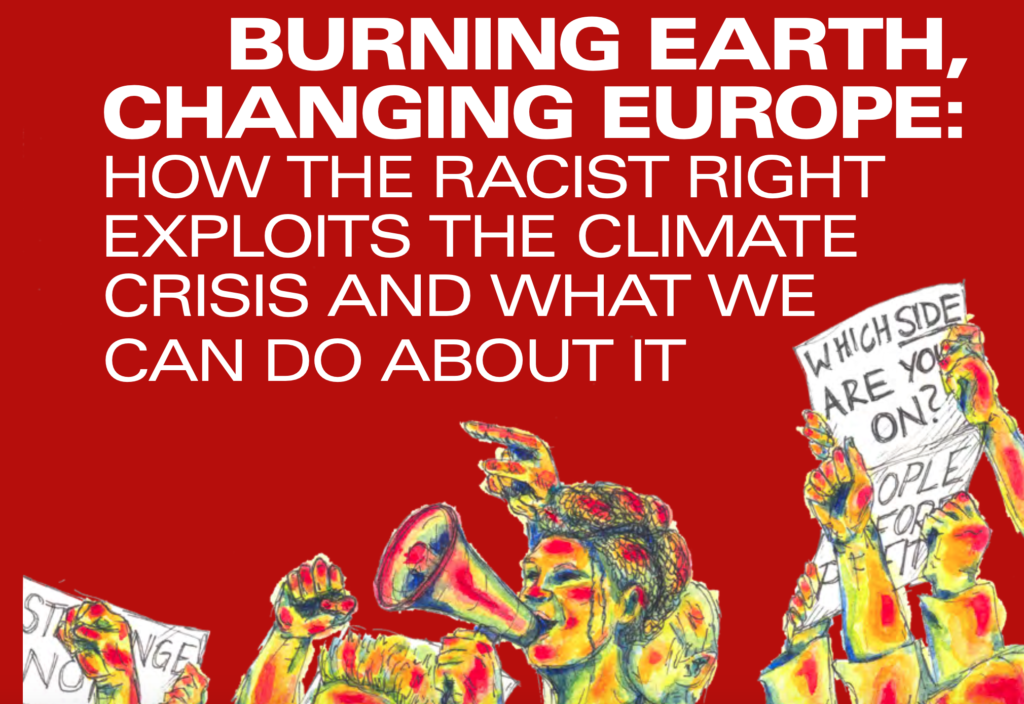
Moore conducted interviews with numerous activists across Europe to produce a historical context for ecofascist narratives, as well as six case studies on right wing politics and their adoption of twisted environmental talking points in Hungary, Germany, Poland, Italy, France and the UK and she offers guiding questions so that eco-activists may better analyse their local contexts and make up their own minds about whether deep ecology sometimes goes too deep.
This is why Hilary Moore was the ideal guide for our deeper inquiry session into ‘The Dark Side of Environmentalism’. She offers us three core things every climate activist should know:
- Climate change is not an inherently progressive issue
- How you think and talk about climate may prop up right-wing groups
- Far right does not need to govern to influence
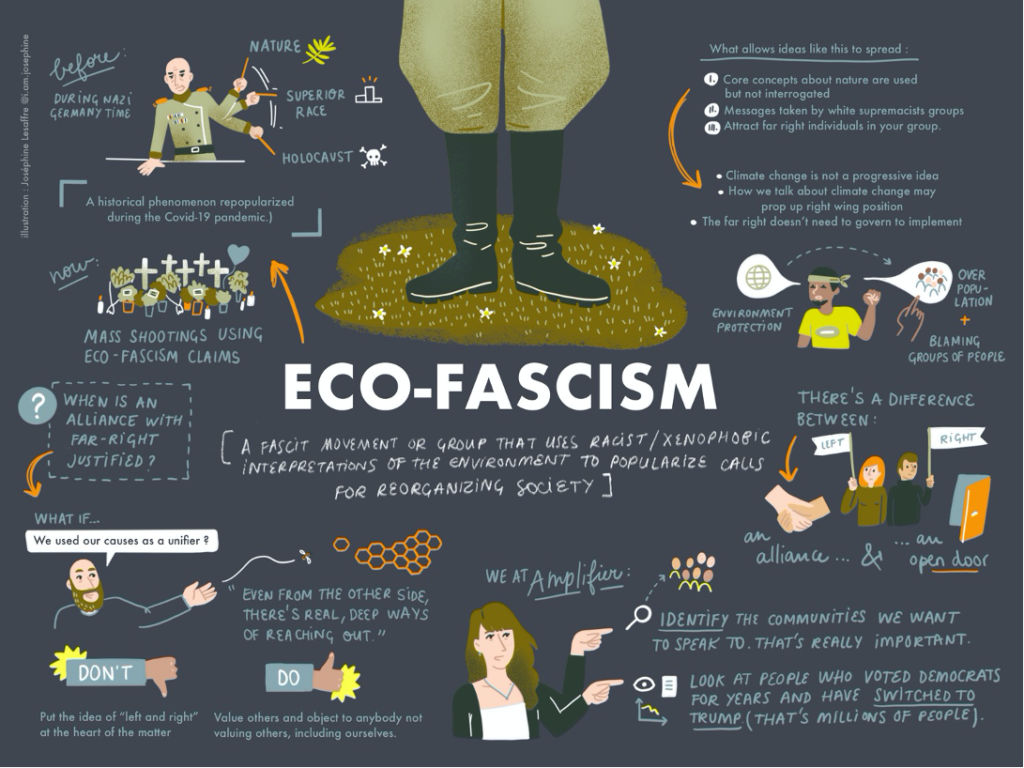
Point 1: Is it worth keeping climate a progressive issue? Or is it neutral? Is it universal?
This point needs to be considered carefully, especially by younger generations. The Right wing wants to “reclaim” environment as a topic. In Germany, right-wing publications are using the ‘take back nature’ & ‘reclaim the environment’ narrative. Since the according to the European Commission’s 2019 Eurobarometer survey, 93% of European citizens consider climate change a serious problem, in political terms, this means that people on the entire political spectrum can be swayed with eco-flavoured policies and promises.
It means that a fascist movement or group will use racist or xenophobic language alongside messages of ‘going back to the land’, ‘purifying the country’, while calling to renationalise society. Therefore a universally reasonable objective like food sovereignty, pesticide-free vegetables, small-scale farming, will also often involve unreasonable authoritarian values, often white or white nationalistic or anti-immigrant, ‘farmers unite against foreigner land-workers taking your jobs’. Hilary reminds us that this “is not new, but a historical phenomenon. This grants us the opportunity of learning from the past. We are not starting from scratch and this is an advantage.” Janet Biehl and Peter Staudenmaier write in Ecofascism Learning from the German Experience, that Nazi ecology was “linked with traditional agrarian romanticism and hostility to urban civilization”, and that ecological ideas were an “essential element of racial rejuvenation”.
We have the opportunity to see why and how all of these events take place and if they come up in any form in our movements what can we do?

Point 2: Beware when the cause and the alarm start to blame marginalised groups.
Moore highlights the green movement “Heimat & Heimatschutz” of Nazi Germany, where ‘blood and soil’ was the hyper-nationalist and also nature-loving slogan, love of homeland meant not-loving ‘otherness’. Such conflations are reocurring today in different forms from New Zealand to Texas, with the Christchurch mosque murderer or the El Paso, shooter, referencing overpopulation, xenophobia and environmental degradation in their maniacal manifestos.

While the real enemy is corporate logic and extractive industries, or exploitative plutocracies going unchallenged, instead, what far right groups (sometimes in bed with the plutocratic elite) often do is scapegoat marginalized people. Therefore anti-immigrant messages such as “bees, not refugees”, a favourite of the online ecofascist group called the ‘Pine Tree Party’, will find resonance with people who blame Roma people for Covid19 spreading, backed by state-sanctioned, racist police brutality, or much like right-wing pundit Ann Coulter, will claim that people have to choose between “greening or browning”.
Vice magazine co-founder Gavin McInnes noted the ecological virtues of population and immigration control when in a 2003 Vice Guide to Happiness, he found optimism in the George W. Bush presidency writing that “immigration is getting handled, which is helping the environmental problems overpopulation has caused.”


We saw at the beginning of the Covid19 pandemic messages spray-painted across cities from Krakow to Paris, “humans are the virus”, “we are the virus”, “we are a parasite”, “mother nature is healing”. This does not have to be right wing or racist, but is often anti-humanist. Even though, Agent Smith’s riveting monologue in The Matrix, is still valid and riveting, the virus-humans narrative reads a bit like shallow, misguided misanthropy. For tens of thousands of years, humans have lived in balance with our natural environment and even early agriculture, forestry, and animal husbandry were minimally destructive on a global scale. Contemporary enviroproblems—climate change, deforestation, species extinction, soil erosion are recent inventions, emerging in the past couple of centuries of colonial expansion and industrial capitalism. So while we were provided with ample meme levity during the pandemic, the deeper and more apt analysis of what is the virus focusses on tenets of the Capitalocene. Moore underscores that it is “risky when we don’t interact with these terms and examine them in how they are used and by whom.”
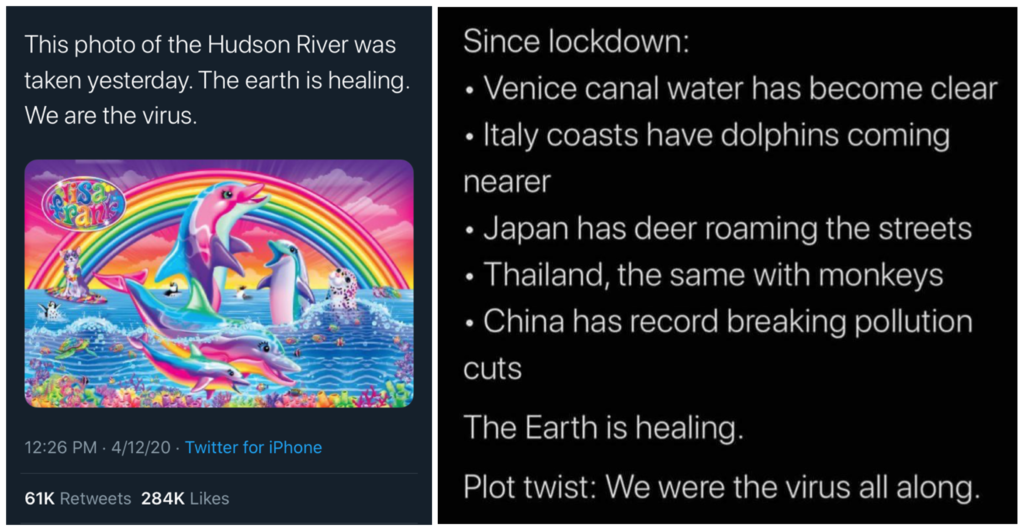
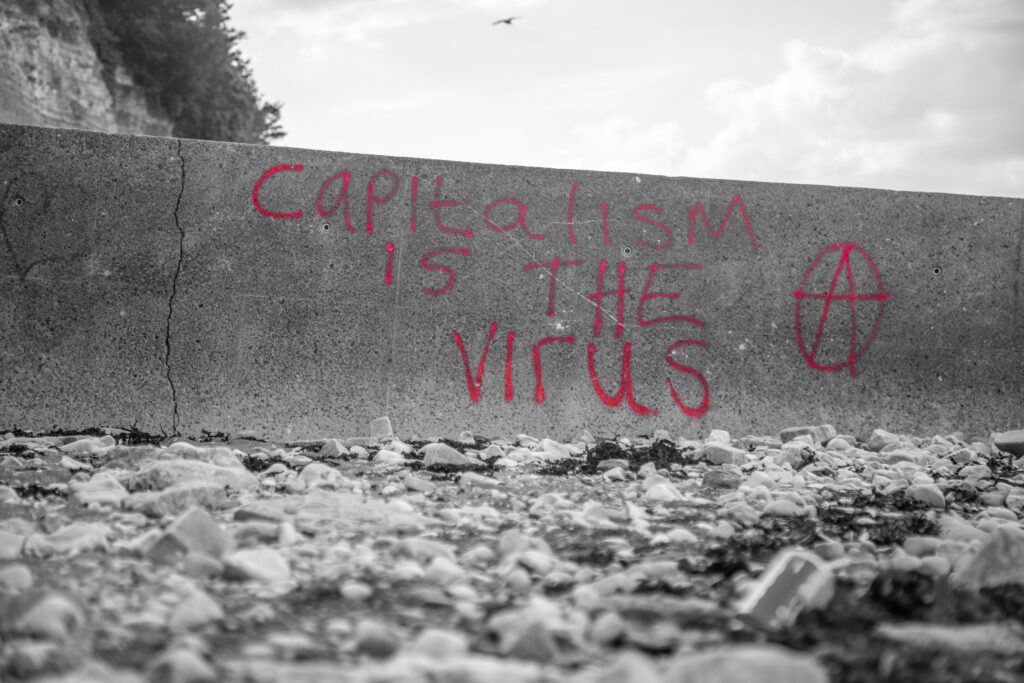
Moreover the burden of environmental destruction cannot be equally shared by all people, since data consistently validates the claim that the wealthiest 10% of people contribute half of global greenhouse gas emissions. The US, Canada, and many European countries have been polluting more and for much longer than countries in the Global South so to direct ecological rage at the whole of humanity is deeply misguided.
Point 3: Far right ideology is dangerous because it can move easily across different parts of society
Fascistic tendencies will grow with support from corporate backing and they do not belong to some random, fringe group. Ecofascism permeates all social strata and can find a solid anchor among land workers as much as in hallowed halls of intelligentsia. Heidegger’s philosophy has legitimised the regional environmentalism, populism and cultural racism of the far right, and not only in the 1940s, Steve Bannon called Heidegger “my guy” in an interview with Der Spiegel two years ago.
Naomi Klein, in On Fire: The (Burning) Case for the Green New Deal writes, “I think the only thing scarier than a far right, racist movement that denies the reality of climate change is a far right, racist movement that doesn’t deny the reality of climate change, that actually says this is happening, there are going to be many millions of people on the move, and we are going to use this abhorrent ideology that ranks the relative value of human life, that puts white Christians at the top of the hierarchy, that animalizes and otherizes everyone else, as the justification for allowing those people to die.”

Similarly, journalist Jake Hanrahan claimed that the Netflix drama, “Manhunt: Unabomber”, aided the growth spurt of contemporary eco-fascism, and that groups such as the Pine Tree Party keep promoting ideas that “blend a sense of impending environmental catastrophe with themes taken from white nationalism”. Subcultures create their own culture and indeed the internet is seeing more ‘terror wave’ messaging, very militaristic, post-apocalyptic, masculine imagery, often unclear in meaning, simply suggestive of taking to arms when society collapses and some of these posts make clear connections to climate-induced societal collapse. Such messaging is meant for the moveable middle of people living in fear or wage slavery or alienation eager to find belonging and purpose.
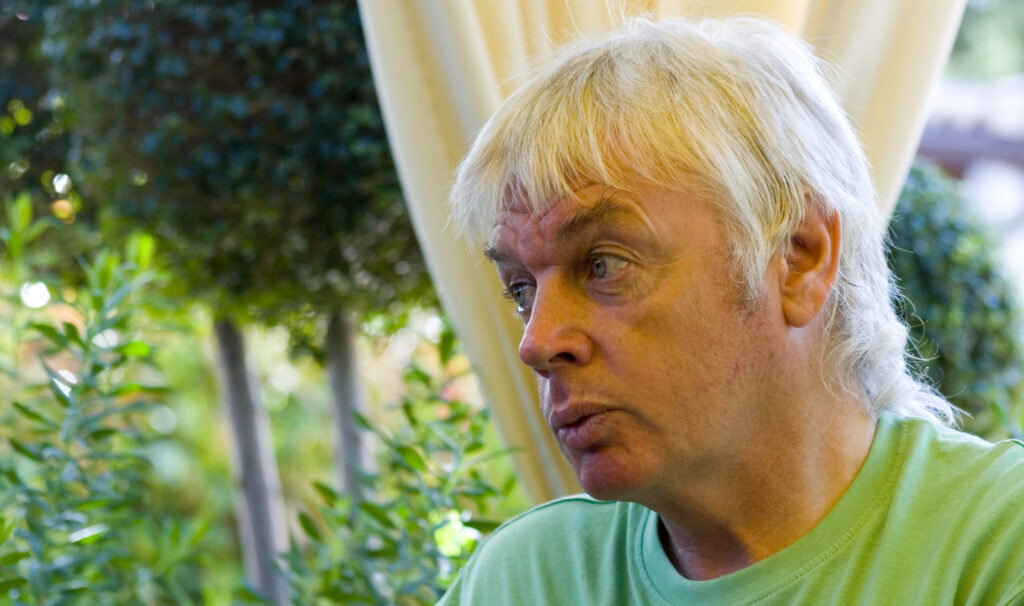
David Icke who is an explicitly anti-semitic conspiracy advocate, in 1990 was a spokesman for the Green Party in the UK, until he visited a psychic who told him he was on earth for a purpose and would receive messages from the spirit world. Most recently he pushed the conspiracy linking the COVID-19 pandemic with 5G mobile phone networks. After the Capitol Hill riots, Jake Angeli and his horns made headlines when his lawyer requested he only be served organic food while in jail. Emily Atkin, a climate journalist writes “the antler guy isn’t a climate activist. He’s an ecofascist.”
Similarly, writer Jules Evans depicted the New Age Nazi Hippies, in his investigations of the overlap between spiritual communities and the far right. Evans notes that Angeli is “anti-Monsanto. But he’s also very anti-globalism, so he’s anti-The-New-World-Order, an old conspiracy trope that there’s a plan to create a one world government to control us all, maybe with microchips, that the UN is part of that problem, big corporations are part of it.” Misogyny also comes into the picture, exemplified by Sandy Irvine, a former International Socialist organiser who wrote that “women working at night are glad to see lights wastefully left on in empty corridors, simply because they feel safer.”

Anti-Monstanto – legitimate. Microchip conspiracy – not legitimate. Energy waste – legitimate. Covert misogyny – not legitimate. Anti-big-corporations – legitimate. That they’re making 5G-Covid – not legitimate (then again who am I to say? the believers will say they did their ‘research’). So many layers are packed into the messaging that where truth ends and lies or malice or paranoia begin is increasingly harder for people to distinguish.
But as Moore warns us, we need to learn language of nuance when both speaking and listening. Who is saying what and for what purpose, and how, the better we are at sharpening these tools, the more immune we are to manipulation and perhaps at not alienating others.
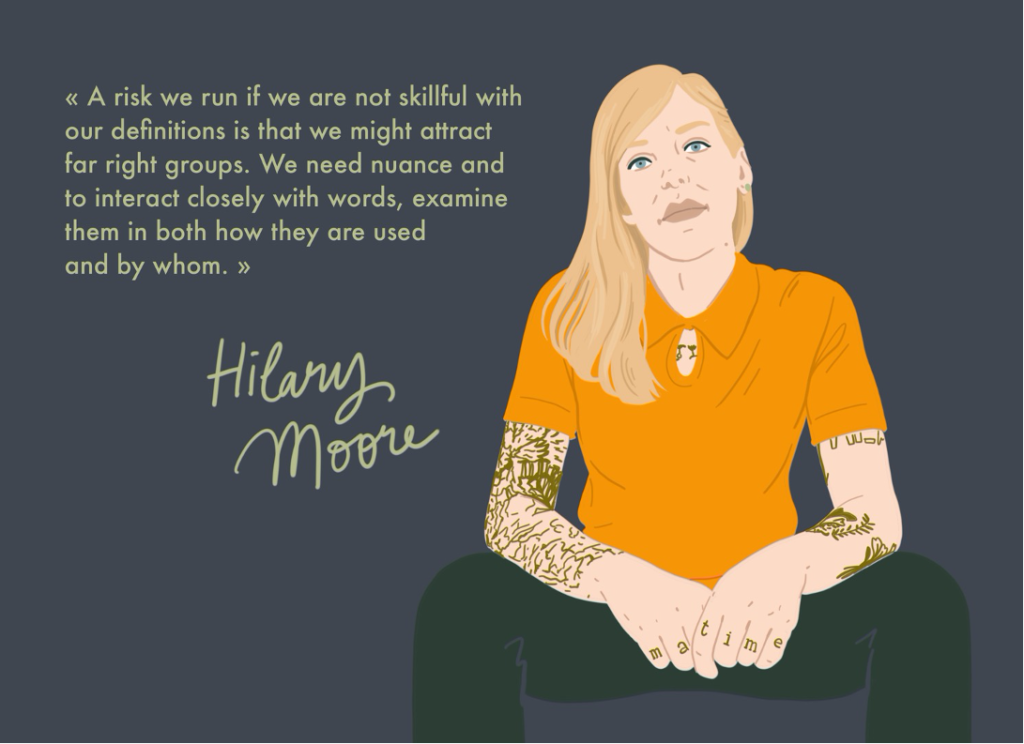
The Case of Poland
In “Burning Earth, Changing Europe”, the Polish case study explain that “the leading right-wing influence on climate politics in Poland is the governing party, Law and Justice (PiS), also known as the “pro-coal party.” The party formed an absolute majority government in 2015 and in recent years, PiS has adopted a more populist position using “us vs. them” and the “enemy within” rhetoric. Moore writes, “PiS has created an anti-establishment image for the “losers” of the transition from socialism to capitalism, where the enemies are elites, the LGBT community, or people who practice Islam, where “hard-working people” and Christian identity are perceived to be under threat. This is why we invited climate activist Kuba Gogolewski to offer richer insights into the Polish brand of ecofascism. “The only thing opponents of social change need to do is nothing: that sustains the status quo. We have to be much more active to change things. The far right currently sets the status quo” he notes.
Gogolewski, is a senior campaigner at Foundation Development Yes Open-Pit Mines No, a grassroots movement with the goal to prevent the opening of new open-pit lignite (coal) mines in Poland and promote a Polish economy based on renewable energy, and he is no stranger to serious clashes with the establishment.

“Real threats to life and health can come with the fight for climate and environmental justice” – his battle is an uphill one, and he highlights that “history matters a lot. There is bias. Trade unions are left in Poland. But recently the right increases in Poland. To be leftist is an insult now, they use the term ecologist to strip someone of their expertise in public debate”.
Within international climate politics, PiS is quite shamelessly voting against the majority of climate and energy proposals in the European Parliament.
Most recently Poland’s representatives rejected the ‘net zero by 2050’ decarbonization proposal on the grounds of an East-West divide, that the country cannot be held to the same standard as Western Europe. The Prime Minister noted that “Poland would be reaching climate neutrality at its own pace.” However, right-wing groups use this pretext to cultivate a myth within climate politics; while it is true that the Polish economy is weaker to that of Germany, France or the UK, that Poland needs to develop itself to reach the living standards of those countries, before it can afford cut emissions is false. A lie coated in truth, a hallmark of Orwellian politics.

In preparation for the session Kuba tells me, “you cannot take justice for granted, you must always ask, justice for whom, and justice for what?” reminding me of The Handmaid’s Tale, “there is more than one kind of freedom, freedom to and freedom from. In the days of anarchy, it was freedom to. Now you are being given freedom from”. Words and concepts are slippery, and thus easy prey for co-opting. Even though ecologist is akin to a political slur in Poland, a right wing think tank published an article titled “Do not leave ecology to the left“, describing “the opportunity for right-wing structures to engage more proactively with ecological issues”.
Kuba joined the anti-coal movement because it was the only one in the rural areas. Most NGOs are in cities across Poland. There are differences between these two settings and “how much someone is affected directly by the issue changes priorities and stances”. For the open pit mines, the question was about resettling not climate. People didn’t want to move just because lignite companies wanted to turn the landscape into Mordor.

But then followed the realisation that coal was probably the biggest climate issue in Poland. Even though the frames of water protection and objecting to resettlement were more prominent, the movement started there and then added the climate frame to it. Once some momentum was gained, movement power allowed for addressing of other issues too, such as finance and fossil fuels. At the same time, the strategy was maintaining the local contact and grassroots organising while channeling change that went beyond local.
“I think we won’t be able to win anything close to 1.5°C unless we tackle the finance issue”, Kuba’s specialty is finance campaigning and following the money, including often the double standard of philanthropic foundations which fund green initiatives with grants, while huge chunks of their investment portfolios are still in fossil fuel companies.
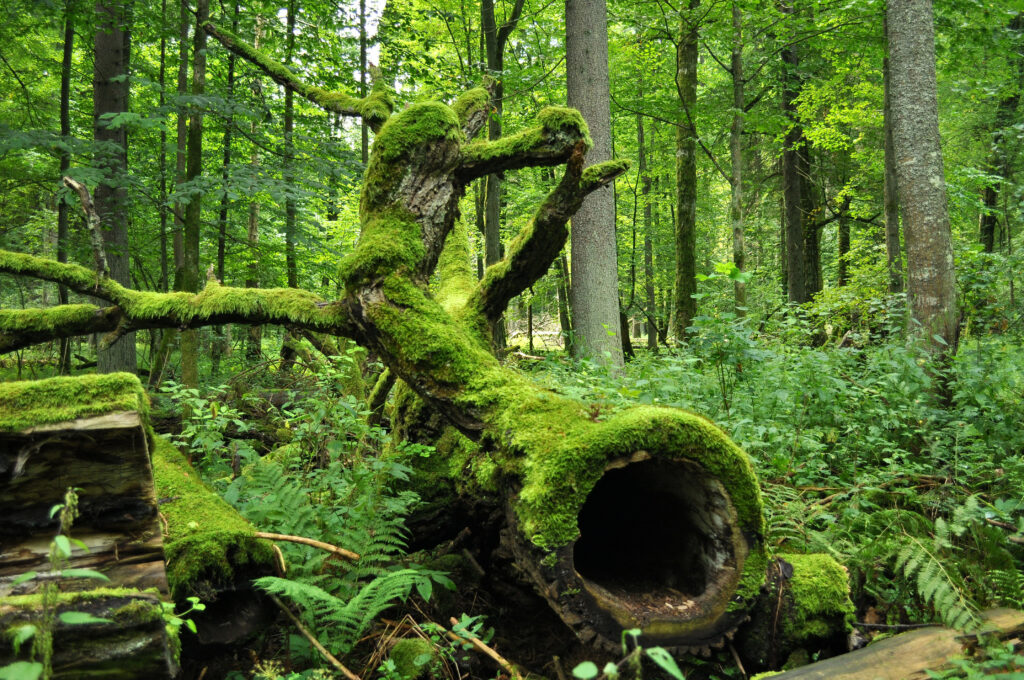
In 2016 Poland made the news, when the then Polish Minister for the Environment, Jan Szyszko, tripled logging permits for the old-growth forest, Białowieża, despite repeated warnings from the European Commission, scientists from across Europe, and thousands of Polish activists. In the midst of the controversy, investigative journalists discovered that EU money allocated to Poland for environmental protection projects like the Białowieża Forest were set up to “feed a right-wing pseudo-ecological political organisation [called puszcza.tv] on the one hand and [a right-wing] media outlet on the other.”
In 2018, the European Union ruled against the government, stating that Poland broke EU wildlife laws. “It was all to humiliate Poland in international relations,” said Szyszko after he was dismissed from his cabinet position. Like Kuba notes, within the country politicians are constantly trying to pit groups against one another, divide and conquer, another age-old strategy.
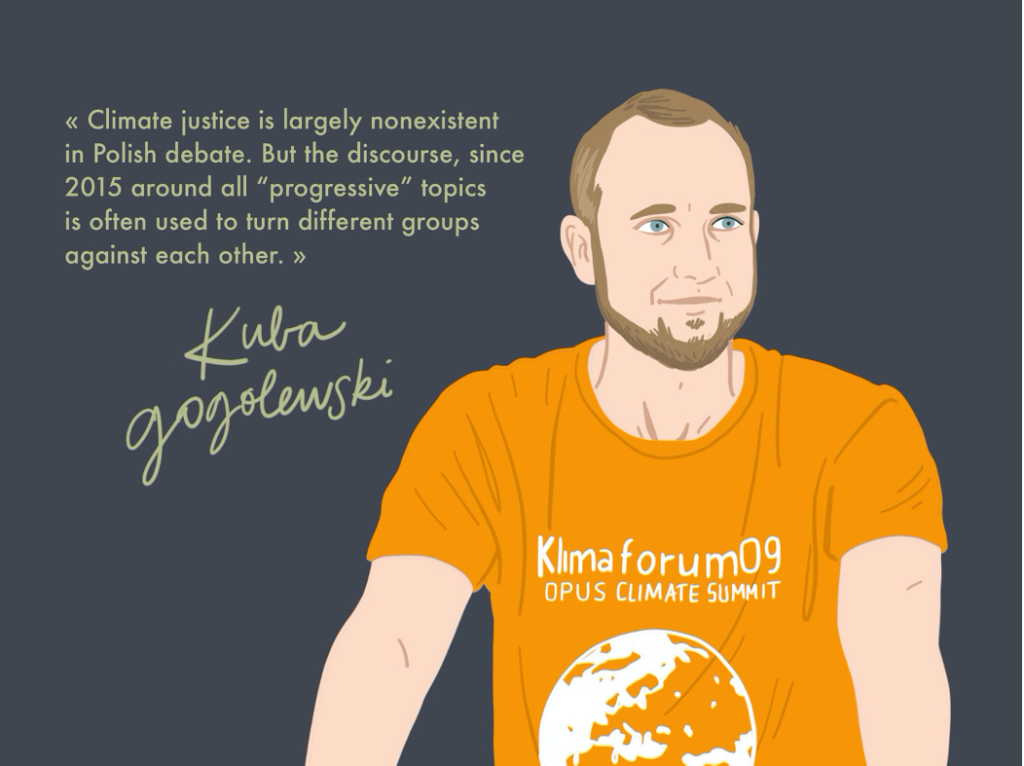
Flavours of Finnish Ecofascism
Finnish writer, ecofascist, and advocate for ‘lifeboat ethics’ Pentti Linkola writes, “what to do, when a ship carrying a hundred passengers suddenly capsizes and there is only one lifeboat? When the lifeboat is full, those who hate life will try to load it with more people and sink the lot. Those who love and respect life will take the ship’s axe and sever the extra hands that cling to the sides”. Linkola also wrote that “the composition of the Greens seems to be the same as that of the population in general — mainly pieces of drifting wood, people who never think” and “any dictatorship would be better than modern democracy. Best dictatorship would be one where lots of heads would roll and government would prevent any economic growth”. I want to agree that many Green politicians are toothless and their narratives those of cowardly pencil-pushers, and that modern democracies have many failures, but I certainly cannot agree that dictatorships are better alternatives. I want to agree that economic growth is a deeply problematic metric of societal success but I also cannot share the view that heads should roll. Yet it quickly becomes apparent to me that while reading through the thoughts of ecofascist scholars such as Linkola, I do agree with numerous statements they make and then I’m abhorred by others.
- No immigration
- Downsizing of population
- Killing of ‘defectives’
- Stopping rampant technology
Again for instance, I find the first three points chilling and yet I’m in agreement with the fourth. Linkola writes “in the eyes of the most credible sources, planet Earth can sustain a half-billion humans without any sizable destruction of our habitat, or any loss in species or stability of our ecosystem. Any numbers higher than that, no matter how much they recycle, will cause environmental chaos. The modern leftist-tinged environmental movement is terrified of telling anyone that they cannot breed and keep buying whatever strikes their fancy, but someone must do this in the future.” Some dubious claims alongside some quite valid ones.
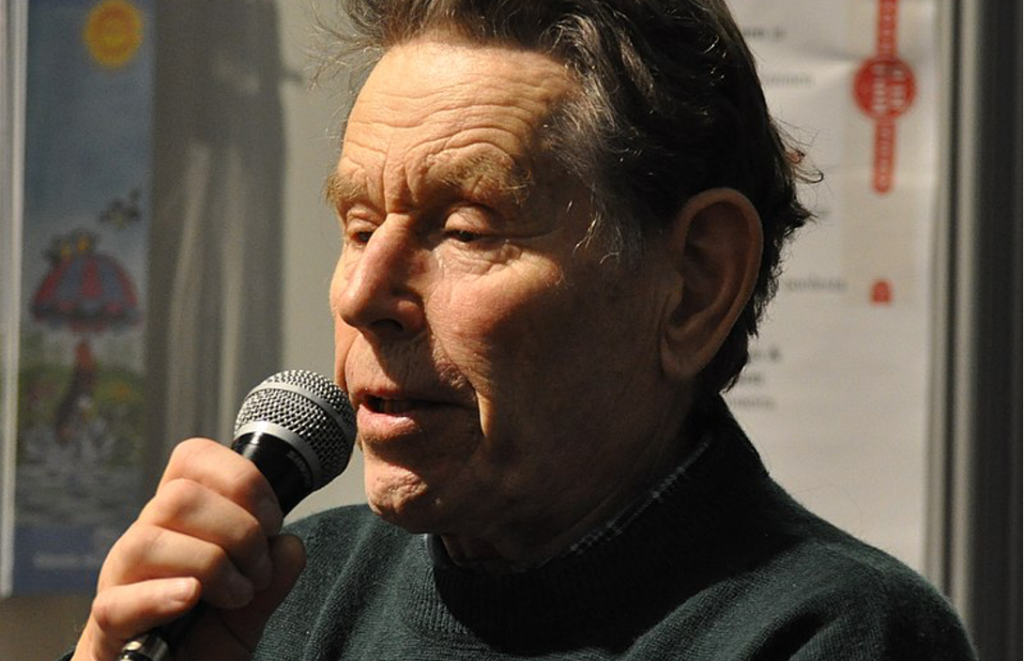
Concluding Thoughts
It is clear that the more familiar we are with movement histories, the less likely we are to repeat past mistakes, and instead we can focus on making new ones. The environmental movement clearly has a history of ‘greening of hate’ and this bloody history steeped in nationalistic, anti-foreigner, idealized-countryside rhetoric bubbles up today. Political lines are blurring and Justin Kendrick from Grassroots2Global rightly highlights, in the Deeper Inquiry discussion, that left and right are not very useful terms, they were always limiting, but nowadays they can be downright misleading. Ironically, Herbert Gruhl – who coined the phrase that Green ‘is neither Left not Right but ahead’ – promptly left the German Greens to form his own far-right Ecological Democratic Party in the 1980s.
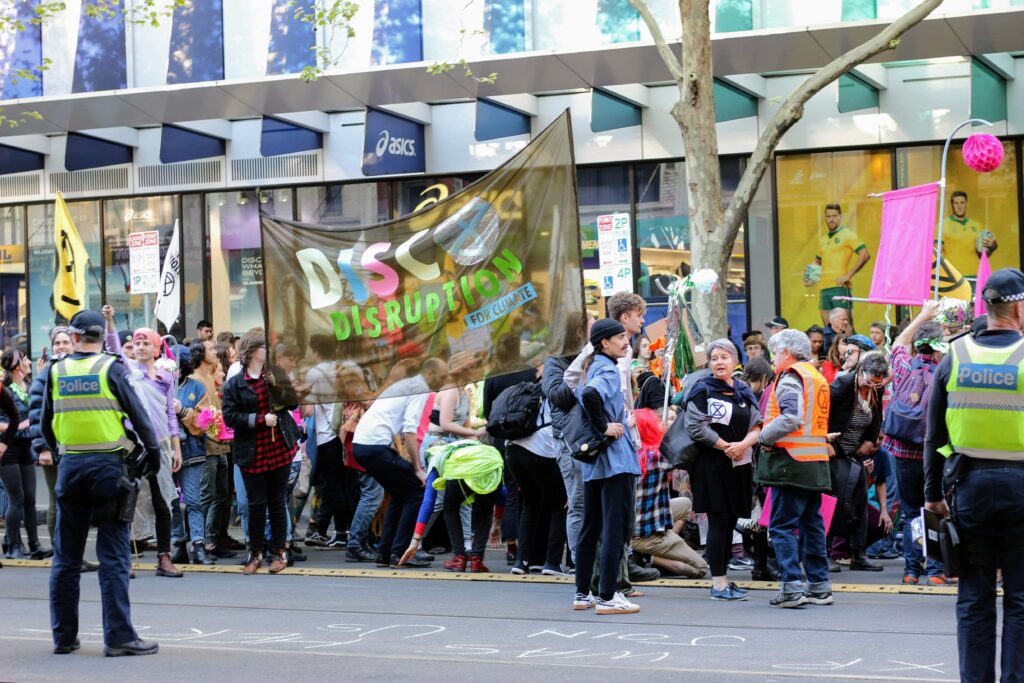
Indra Adnan of The Alternative UK highlights a very prescient point, that movements and political parties sometimes becomes bedfellows unwittingly. She uses the Brexiteers and Extinction Rebellion to illustrate the point. The Pro-Brexit campaigners built their platform on British independence, self-reliance and a narrative of ‘taking care of Britons first’, while the grassroots, civil disobedience movement XR espoused focus on circular, democratised energy and food sufficiency. The Brexiteer perspective was anti-Europe while the XR perspective was pro-planet. For someone who is not paying close attention to the meaning and values scaffolding the political message, they could easily fall into the Overwellmian confusion. Adam Curtis’ words come flooding in “these strange days did not just happen. We – and those in power – created them together”. So the best we can hope to achieve now is dedicate ourselves to understanding nuance, while working on ways to collectively challenge plutocratic extractivists because a hipster, vegan, green tech economy is not sustainable and improving eco-efficiency within a capitalist growth-oriented system certainly wont heal the environment. Meanwhile reading, discussing and diving deeper into these tricky topics may help protect our minds and movements from co-opting, while we try to not cannibalise one another and somehow proceed united.
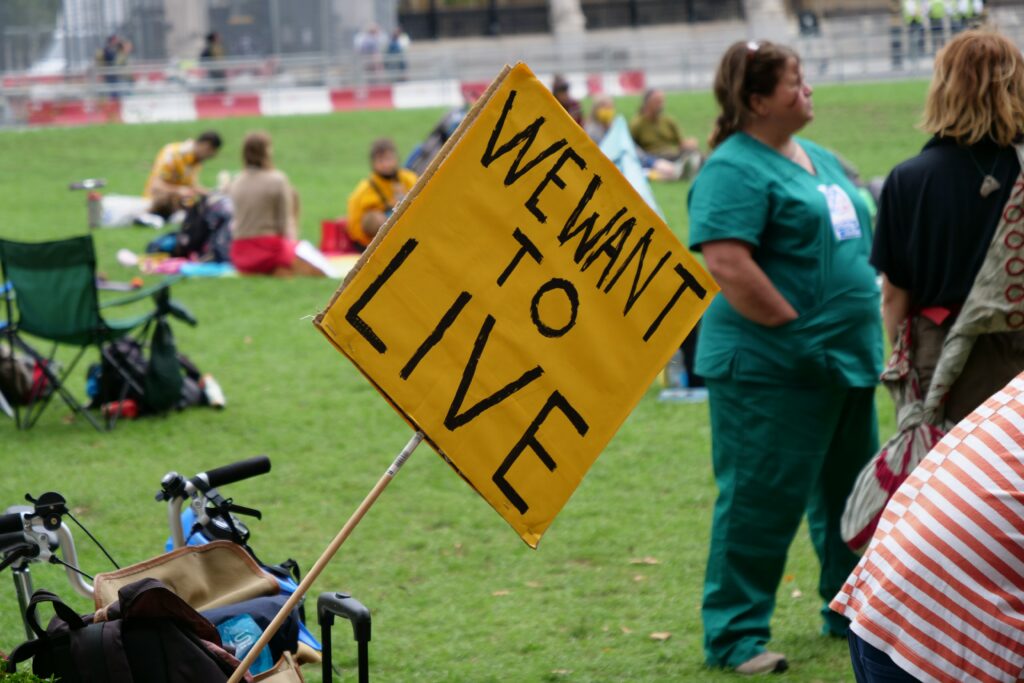
Ecofascism Educational Equipment
Here you can find the entire recorded session of The Dark Side of Environmentalism with inputs from Hilary and Kuba as well as a discussion with various activists at the end.
In addition, we developed some specialised worksheets as well as a colouring page for workshops with a focus on environmental movement building or ways to bridge political/narrative fragmentation, so budding facilitators can freely download these resources and adapt them according to their needs.
The Transformazing Being (a colouring page activity for mindful rebels)
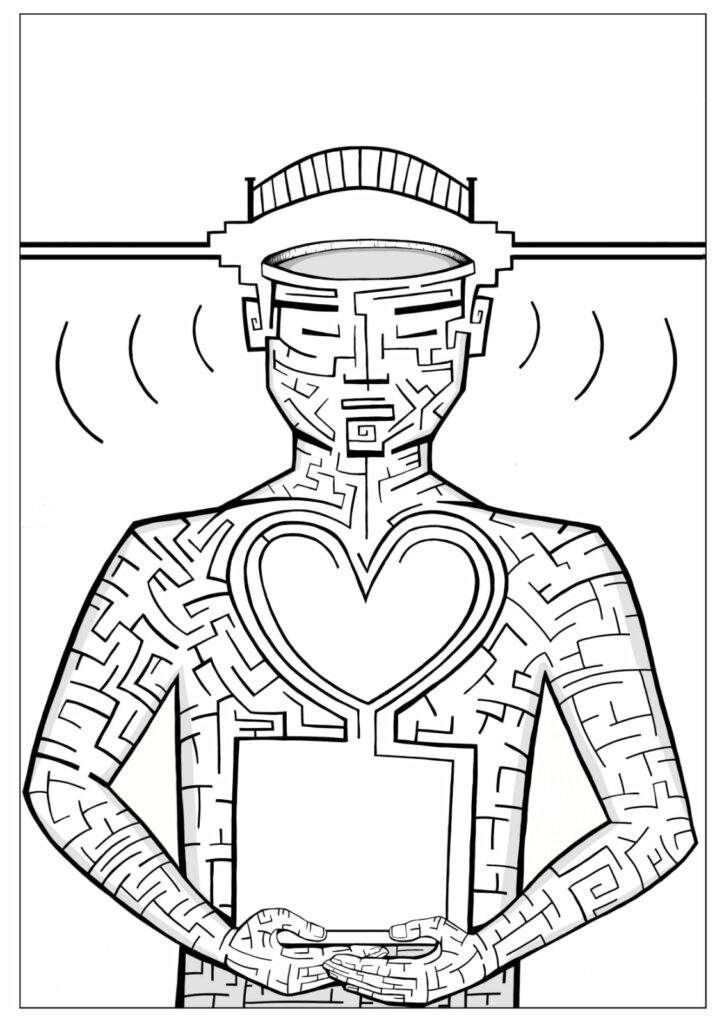
*About the Image: (note from the artist)
This page was inspired by a quote shared in ‘A Deeper Inquiry’ Session #1: “It’s easier to act your way into a new way of thinking than it is to think your way into a new way of acting.” During the session, several people also used the metaphor of a bridge, so I worked to create something that would allow folks to dive deeper into the imagery.
As complex as this being may appear, there is actually a direct route that takes you quickly through. The trick is knowing where to start.
We have provided you with a few different ways to use this page, including prompts and questions to support a deeper inquiry. You are also welcome to add questions or adapt the activity to suit your needs, and we’d love to know about it!
ACTIVITY 1 – ‘Bridge on the River Why‘
This page can also be used to debate 2 sides of an issue. Can be done individually, in pairs or groups.
- Write the Neutral topic at the top of the page
- Pick a Side: In the space to either side of the figures head, write or draw the polarized perspective on the issue.
[LEFT: RIGHT:]
Note that if you attempt to start from either side of the figures head, you will easily enter the maze, but you get stuck in the ear. Welcome to the echo chamber! - The Echo Chamber: On the lines radiating from the persons head, write down common arguments made by that “side”.
- Venn Diagramaze Me! Now this is where it gets fun! You must complete the maze together, despite differences. Where is there overlap or crossover? Where can you agree? This will form the foundation of your bridge. [Hands: Heart: Head: ]

ACTIVITY 2 – ‘Head, Heart and Hands’
For Teams: Making Plans
- Write the shared goal at the top of the page [Host workshop]
- Track the responsibilities, contributions or actionable steps for each role.
[EXAMPLE: Head – create timeline and budget; Heart – Support team, stay rooted in intention; Hands: set up space and assist hosts during workshop.]
For Individuals: Making Decisions
- Write the topic at the top of the page [Do I move for this awesome job?]
- Using the blank space provided, look at the issue from different perspectives, and ask:
- Head: What are the objective facts? What are the logical pros and cons?
- Heart: When you imagine each possibility, what do you FEEL? This can include excitement, fears, or intuition.
- Hands: How will this decision impact your body? What support will you need? Which of your skills/abilities will be put to use?
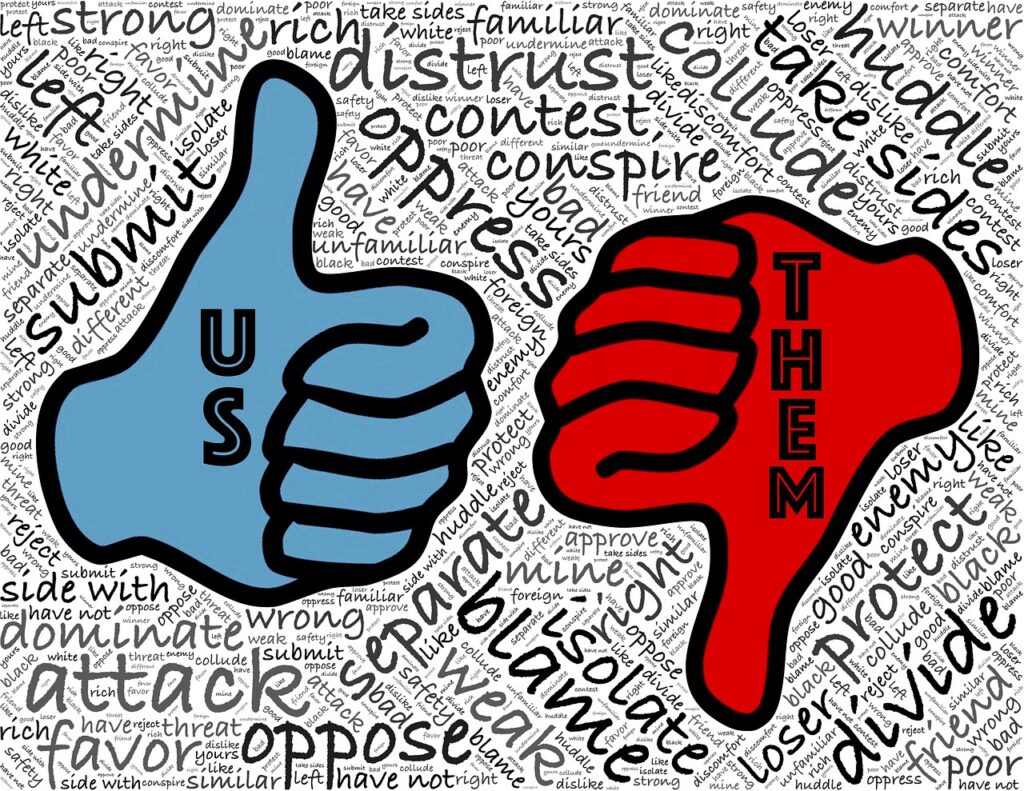
Activity 3 – ‘Shifting the Default / Identify the Action / System Upgrade’
“It’s easier to act your way into a new way of thinking than it is to think your way into a new way of acting.” – Millard Fuller (maybe)
Use this page to break old patterns and support a new way of thinking. (you may want to print multiple copies for this exercise)
- Default Settings: Things as they are, like it or not.
- Hands – physical habits or actions that you want to release/transform.
[Waking up and checking my phone right away] - Heart – How those habits/actions impact your emotions.
[I feel anxious, restless, disappointed…] - Head – Thoughts/Judgements/beliefs about the habit/action
[I am wasting time, I feel stuck]
- Hands – physical habits or actions that you want to release/transform.
Keep this page for future reference. Changing a habit, thought or belief may take a bit of experimentation.
- Upgrade! Try a new Design
On a separate page, design your upgrade. (NOTE: you may want to use a new page for each action/habit you want to experiment with.)
- Hands – physical habit or action to replace outdated one.
[Keeping my phone in a separate room to where I sleep] - Heart – Feelings you want to evoke through your actions
[I feel fully, rested, spacious and curious]
* This is your compass moving forward – if you don’t feel these things, return to the hands. - Head – Thoughts/Beliefs you want to support (affirmations)
[I am present, I am complete, I am ready.]
We are always looking to improve so if you want to leave us some constructive feedback please write to us at: hello@newgf.freepresshost.com

